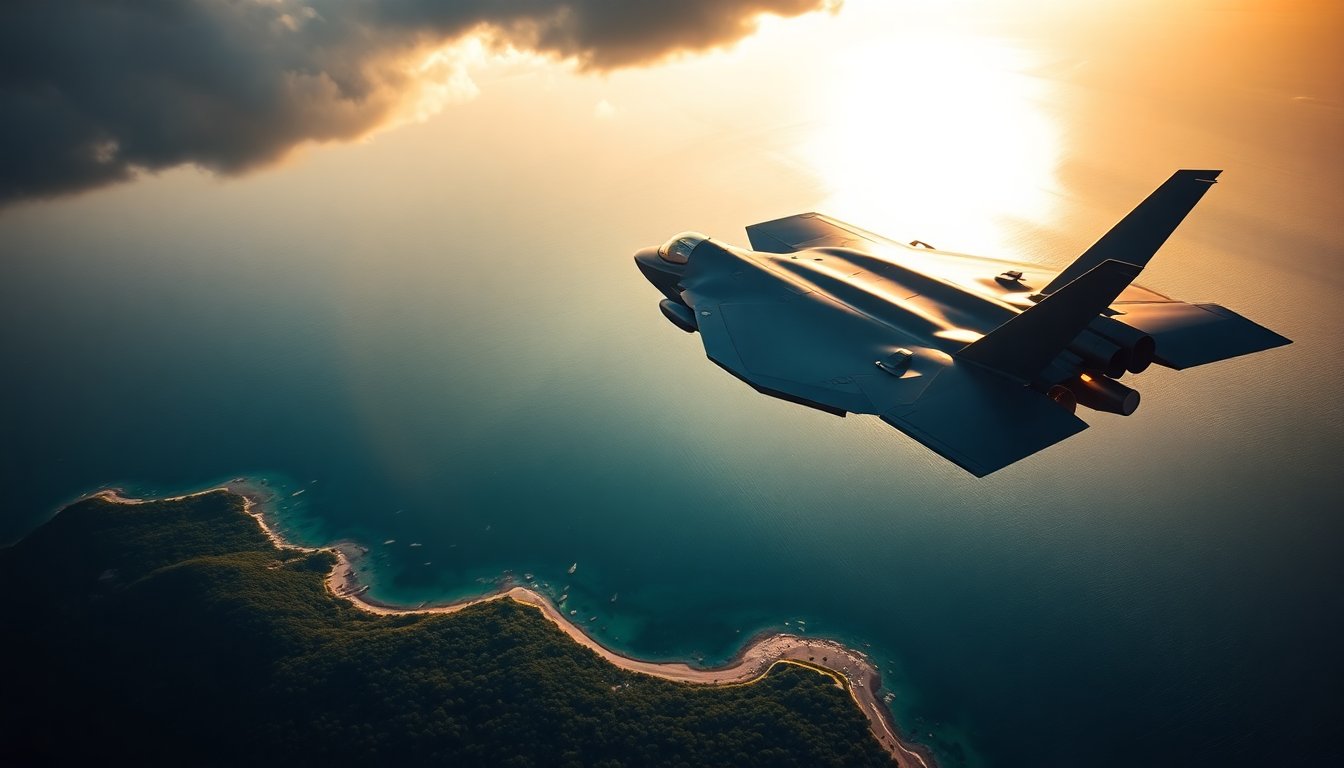Table of Contents
The recent deployment of F-35 stealth fighter jets to Puerto Rico signifies a notable escalation in the United States’ military stance towards Venezuela. This maneuver occurs amid growing tensions between Washington and Caracas, with President Donald Trump reportedly considering military options against drug cartels operating within Venezuelan territory. The strategic implications of this deployment are significant for both the immediate region and the broader geopolitical landscape.
Current Military Landscape
Reports indicate that ten advanced F-35 jets are being dispatched to an airfield in Puerto Rico as part of operations targeting what the US government classifies as “narco-terrorist” organizations. This military buildup in the Caribbean is not an isolated event; it follows a series of maneuvers, including the deployment of warships and a nuclear-powered submarine near Venezuelan waters. The US Department of Defense has accused Venezuela of provocative actions, such as flying F-16s near US naval vessels, further straining already tense relations.
The presence of these advanced fighter jets indicates a shift in US strategy towards a more aggressive approach against drug trafficking groups. However, this strategy raises questions about the legality and ethical implications of such military interventions, especially in a sovereign nation like Venezuela, which has strongly opposed foreign interference.
Venezuela’s Response
In reaction to the escalating military presence, President Nicolas Maduro has urged the US to respect Venezuela’s sovereignty and to abandon its plans for what he characterizes as violent regime change. Maduro has mobilized the Venezuelan military, comprising approximately 340,000 active soldiers alongside millions of reservists and militia members prepared to defend the nation. He has warned that any attack on Venezuela would provoke an immediate armed response, underscoring the potential for severe conflict in the region.
Maduro’s rhetoric reflects a growing sentiment within Venezuela, where the populace has become increasingly cautious of US intentions. The Venezuelan government frames the situation as not merely a battle against drug trafficking but also a fight for national sovereignty and independence. As tensions escalate, the prospects for dialogue appear to diminish, creating a precarious situation for both countries.
Implications for US Policy
The deployment of F-35 jets and the overall military buildup in the Caribbean represent a significant shift in US foreign policy towards Latin America. While the Trump administration has publicly claimed it is not seeking regime change in Venezuela, the actions taken suggest otherwise. The discrepancy between rhetoric and action fosters an atmosphere of uncertainty that could lead to miscalculations by either side.
Moreover, the US’s approach to addressing drug cartels through military means raises essential questions about the effectiveness of such strategies. Historical military actions against these groups have often resulted in collateral damage, failing to achieve the intended outcomes of reducing drug trafficking. Critics contend that a more nuanced approach, emphasizing diplomacy and cooperation with Latin American countries, could yield better results in combating the drug trade.
As the situation evolves, it is crucial for policymakers to consider the long-term consequences of military interventions and to pursue strategies that promote stability and peace in the region.


